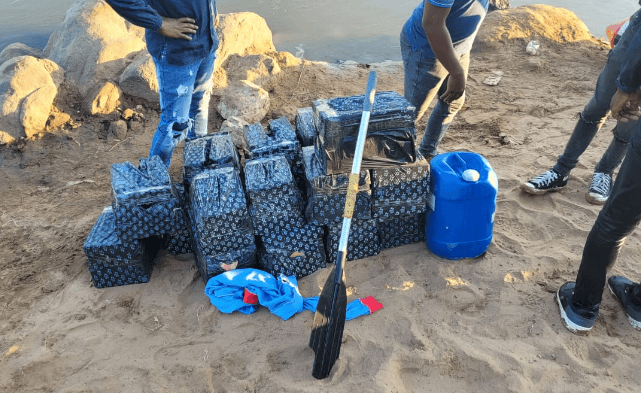Smuggling in Botswana: BURS Cracks Down on Illegal Imports as Over P1 Million in Goods Seized

In the ongoing battle against smuggling, the Botswana Unified Revenue Service (BURS) has revealed alarming figures showing that over P1.1 million worth of goods were illegally brought into the country in 2023. While efforts to curb this activity have seen a decrease in smuggled goods this year—down to P880,000—the issue remains a pressing concern for border control authorities.
A Growing Concern: What’s Being Smuggled?
The types of smuggled goods range from everyday items to more concerning contraband. According to Ms. Mable Bolele, BURS General Manager of Communications, these goods include cigarettes, medication, maize extruded snacks, currency, and vegetables. This variety highlights how smuggling touches both the health sector and the general economy, undermining local businesses and tax revenues.
“Smuggling affects our economy in multiple ways. The illegal importation of goods not only circumvents customs duties but also introduces unregulated products into the market, which could potentially harm consumers,” said Ms. Bolele.
Smuggling Statistics: A Year-on-Year Comparison
In 2023, BURS recorded 98 smuggling cases, a stark reminder of the extent of the issue. However, the situation is showing slight improvement in 2024, with 81 cases reported so far. Of these, 33 are still pending investigation, while 48 have been resolved. These cases are spread across Botswana’s borders, though the Ramokgwebana border gate, in particular, has been flagged as a hotspot for illegal activities.
BURS also reports that smugglers are increasingly taking advantage of ungazetted areas—remote, unofficial crossings—to evade detection. This presents a unique challenge for law enforcement as patrolling such extensive and often inaccessible border lines requires significant resources and coordination.
Customs Act Enforcement: Fines and Confiscations
To address the growing problem, BURS has been invoking Section 96 of the Customs Act, which requires all individuals entering or leaving Botswana to declare any goods in their possession. This law applies at all points of entry, including both inland borders and airports. When offenders are caught, their goods are confiscated, and fines are imposed.
“The Customs Act obligates every person to declare their goods. Failure to do so results in stiff penalties, and we are committed to ensuring that all illegal imports are seized and the offenders prosecuted,” Ms. Bolele stated.
So far, BURS has successfully confiscated all smuggled goods involved in the 81 cases for 2024, demonstrating its commitment to maintaining control over Botswana’s borders and enforcing customs regulations.
Local Involvement: The Hidden Problem of Complicity
One of the more troubling aspects of the smuggling issue is the involvement of local citizens. Ms. Bolele revealed that some individuals are helping smugglers by hiding illegal goods on their properties, complicating efforts to tackle the issue. This local complicity undermines BURS’ efforts and contributes to the continued rise in smuggling cases, especially in areas near border crossings.
“Unfortunately, some people are providing safe havens for smugglers by harboring illegal goods in their compounds. This not only breaks the law but also puts them at risk of fines and legal action,” Ms. Bolele added.
Strengthening Border Security
BURS has ramped up its efforts to control smuggling by increasing border patrols and tightening surveillance at key points of entry. The agency is working closely with law enforcement to monitor border activity, especially in areas notorious for smuggling.
“We are hard at work patrolling all border lines, both gazetted and ungazetted, to try and arrest offenders and deter illegal activities,” said Ms. Bolele. Despite the challenges, BURS remains committed to protecting Botswana’s borders and maintaining the integrity of its customs processes.
The Road Ahead
While the efforts of BURS have led to a decrease in the value of smuggled goods so far in 2024, the problem is far from over. Smugglers continue to exploit gaps in border security, and local cooperation with offenders remains an obstacle. However, through stricter enforcement of customs laws, increased border surveillance, and public awareness campaigns, BURS is determined to reduce the smuggling of illegal goods into Botswana.
For the citizens of Botswana, the message is clear: smuggling is not a victimless crime. It undermines the local economy, endangers public health, and supports illegal activities that could have broader societal implications. By working together, both authorities and the public can help protect Botswana from the harmful effects of smuggling.
As Ms. Bolele concludes, “It is not just about catching smugglers, but about safeguarding our nation’s well-being.”







